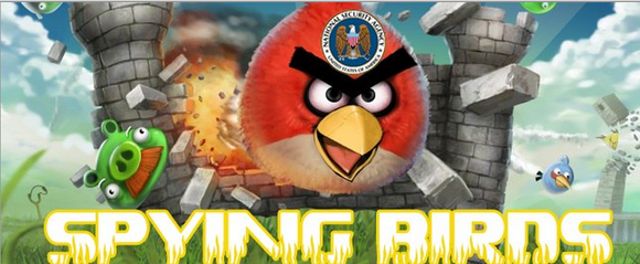'Spying Birds': Angry Birds website hacked after GCHQ revelations over 'leaky apps'
App maker Rovio's website hacked after documents released by Edward Snowden suggested spy services had targeted game's users to extract data

Your support helps us to tell the story
From reproductive rights to climate change to Big Tech, The Independent is on the ground when the story is developing. Whether it's investigating the financials of Elon Musk's pro-Trump PAC or producing our latest documentary, 'The A Word', which shines a light on the American women fighting for reproductive rights, we know how important it is to parse out the facts from the messaging.
At such a critical moment in US history, we need reporters on the ground. Your donation allows us to keep sending journalists to speak to both sides of the story.
The Independent is trusted by Americans across the entire political spectrum. And unlike many other quality news outlets, we choose not to lock Americans out of our reporting and analysis with paywalls. We believe quality journalism should be available to everyone, paid for by those who can afford it.
Your support makes all the difference.The website of game developer Rovio has been hacked, with a picture of the company’s best-selling Angry Birds game replaced with one entitled Spying Birds and featuring the logo of the National Security Agency (NSA).
"The defacement was caught in minutes and corrected immediately," said Saara Bergstrom, a spokeswoman for the company. "The end-user data was in no risk at any point."
The attack comes days after documents leaked by Edward Snowden suggested that the American spy agency and its British counterpart, GCHQ, used the game and other “leaky apps” to collect information on smartphone users.
The Finnish company said that they do not “share data, collaborate or collude with any government spy agencies such as NSA or GCHQ anywhere in the world,” and suggested that “the alleged surveillance may be conducted through third party advertising networks.”
Rovio CEO Mikael Hed suggested that “the most important conversation to be had is how to ensure user privacy is protected while preventing the negative impact on the whole advertising industry and the countless mobile apps that rely on ad networks.”
"In order to protect our end users, we will, like all other companies using third-party advertising networks, have to re-evaluate working with these networks if they are being used for spying purposes," he said.
The latest leaks provided by Snowden referenced a GCHQ report from 2012 that had referred specifically to siphoning data from Android smartphones with Angry Birds installed. Information about the user could include age, sex, location and details about how they used their phone.
Another slide from the British spy agency titled “Golden Nugget” set out a “perfect scenario” where the target was caught “uploading photo to a social media site taken with a mobile device.” This would allow GCHQ to take a “possible image”, email as well as “a host of other social working data”.
Join our commenting forum
Join thought-provoking conversations, follow other Independent readers and see their replies
Comments